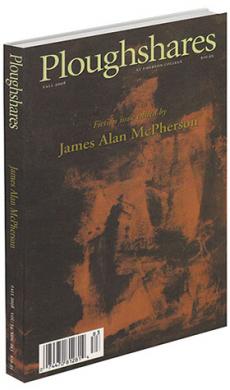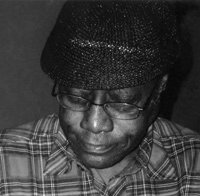rev. of Water: Nine Stories by Alyce Miller
Water: Nine Stories, stories by Alyce Miller (Sarabande): By its title, Miller’s collection offers a fitting symbol for the multiple forms of desire that take shape within her characters. Filled with beautiful phrasings and descriptions of longing, the book sometimes shows desire’s fluidity as a result of age; other times, as in the story "Ice," old regrets can harden from the substance of childhood. Whether related to love, loss, a desire to belong, or a need to reconnect, the various states of longing all seem to struggle for some level of equilibrium. Miller’s characters, often backwards-looking, are in search of a bridge between their past and present, hoping it might lead them to a better understanding of how to conduct their current lives.
In "Swimming," water becomes a "way of forgetting" for a remarried art history professor who’s suffered multiple miscarriages. The story, typical of Miller, begins as a quiet reflection, although it takes a surprise turn that transforms it into a thrilling encounter, one with bizarre and dangerous overtones. In this and other stories, the author provides no easy resolution to the plot, nor indeed to the question of desire itself. Such is also the case in "Cleaning House," which looks at the ups and downs of an intermittent love affair, or in "Aftershock," a story that unfolds through a series of letters to an ex-lover. In the latter, the narrative changes from innocent ruminations on the nature of disaster to more fatalistic, even threatening scenarios involving the ex. In one letter, "J" asks: "I…wonder, D, if you ever imagine that moment when the earth cracks open…and sends you…shimmying off the edge into those gray, choppy waters below." Seemingly spiteful, "J" is in fact more earnest in her confusions about moving on. For herself as much as for the one who spurned her, her questions about whether "speed will alter fate," or what it means "to elude destiny," all point to more general fears about loss of control and the impending dangers that may result.
Perhaps the most imaginative story in the collection is "Dimitry Gurov’s Dowdy Wife," in which Miller reprises a Chekhovian tale from the point of view of the otherwise unnamed female character. In what might be a typical male-centric story of infidelity, Gurov’s wife not only claims the narrative voice, but she reclaims her own honor and identity. In other stories, like "Getting to Know the World" and "My Summer of Love," Miller’s characters come of age in a crosscurrent of changing values and generational differences. The former tells of a black girl in a small Ohio town during the Civil Rights movement, trying to understand the meaning of tolerance. In the latter, a teenage boy moves halfway across country to his aunt’s and uncle’s while his parents try to work out their marital problems. Through his observation of both couples, Oscar learns an early, valuable lesson about what he calls the "relative uncertainty of adult relationships."
This notion of uncertainty as being "relative" seems not only wise but far-reaching. It suggests a dependency on both other characters as well as on external, often unpredictable, conditions, while it also provides a fitting return to the book’s title. The narrator in "Aftershock," as if speaking for the collection as a whole, describes her search for a "sense of well-being and definition that [make] up the contours" of her life. In Water, we see those contours constantly shifting, constantly being refashioned by outside forces. Just as water itself doesn’t determine its own shape, so are the boundaries of our well-being rarely, if ever, determined by ourselves. —Jonathan Liebson
Jonathan Liebson’s fiction has appeared in Chelsea, Meridian, South Dakota Review, and has been honored by The Atlantic Monthly and the William Faulkner Society. He teaches at The New School and has finished a first novel, A Body At Rest.

